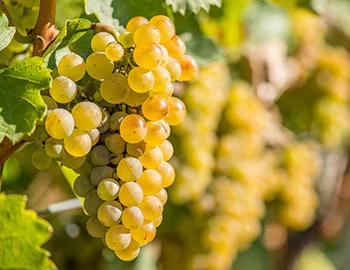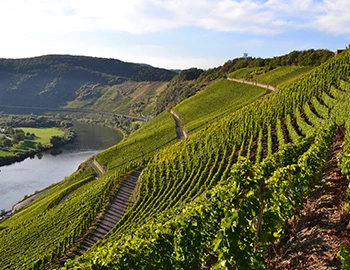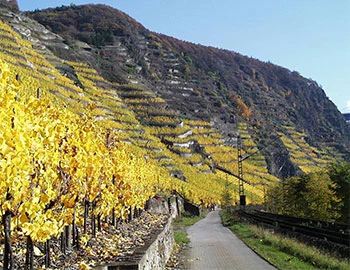
Eitelsbacher Sang Auslese Riesling 1976
QmP Mosel-Saar-Ruwer, Weingut Karthäuserhof, 700 ml

Description
The historic and wonderfully matured Riesling Auslese from the Karthäuserhof, has a scent of fully ripe exotic fruits, mint and honeycomb. A hint of noble botrytis resonates. The yellow fruit exoticism is also evident on the palate, reminiscent of juicy, fully ripe pineapple and Spanish oranges, accompanied by Mediterranean herbs. The Auslese is characterised by a generous opulence, juicy acidity and an excellent balance between sweetness and acidity. The enormously long finish makes it an excellent wine that shines as a solitaire but also harmonises wonderfully with Asian spicy dishes. Its best partner, however, are fruity desserts!
Karthäuserhof
The Karthäuserhof - The cradle of world-famous Rieslings, ever since 1335.
The Karthäuserhof is a magical spot. Not just because of its idyllic location but also because it is the eighth oldest winegrowing estate in the world and for centuries the cradle of world-famous Rieslings. It was founded in 1335 by Carthusian monks who received the estate as a gift from Prince-Elector Balduin of Luxembourg and operated it as a winery until secularisation. Since 1811 the Karthäuserhof has been owned by the same family, now in the seventh generation.
The reason for the exceptional quality of the wines from the Karthäuserhof is the legendary Karthäuserhofberg vineyard at the foot of which the winery is located. Its unique "terroir" gives rise to wines of incomparable character and immense maturity potential. The Verband deutscher Prädikatsweingüter (VDP), i.e. the Association of German Quality Wine Estates, classifies the Karthäuserhofberg as a “VDP.GROSSE LAGE”, thereby designating it as one of the outstanding quality German vineyards. This classification is reserved for vineyards from which the best German wines offering complex taste, expressive vineyard character and particular maturity potential originate.

Riesling
The cold-weather king
The Riesling is the flagship of the German wine industry. It grows from north to south in all growing areas. It is also comfortable in the neighbouring Alsace region and in Austria. Its specialty is being vinified to a variety of degrees of sweetness, from bone-dry wines to ice wine. Moreover, thanks to its spirited acidity, it ages better than many reds. The typical Riesling smells of citrus, peach and apricot, shows hints of flint, and with maturity develops an idiosyncratic petrol note. It reflects its terroir like hardly any other white variety. Thus, it often gets fuller and more aromatic in Austria than in Germany. In Alsace, in turn, it has a particular mineral taste. Riesling is a wonderful culinary companion. It fits well not only with fish and shellfish, but also takes the heaviness from hearty meals. And with a fine sweetness and acidity balance, it works wonders for Asian cuisine.

Mosel
Mosel: in Riesling territory
In the valleys of the Mosel, Saar and Ruwer, the white Riesling variety fully fulfils its potential. Mosel is not only the German growing area with the highest proportion of Riesling; the largest number of steep slopes are also found here. Around 40 percent of the vineyards are situated on gradients of greater than 30 percent, and must be cultivated with labour-intensive manual work. On the slate soils, Riesling presents its entire inimitable range, from dry to semidry to noble sweet..

Germany
Germany – Into the elite the hard way
Sitting in the heart of Europe, the hilly, lake-dotted landscape of Germany provides ideal, fertile soil for the most diverse vine varieties. From Albalonga to Zweigelt, over 140 different grape varieties are grown on about 100,000 acres, cared for by nearly 50,000 vintners. Most of these vintners are young, modern, internationally trained, inquisitive and urbane. It is hardly surprising, then, that German wine has a good reputation well beyond the country's borders.


